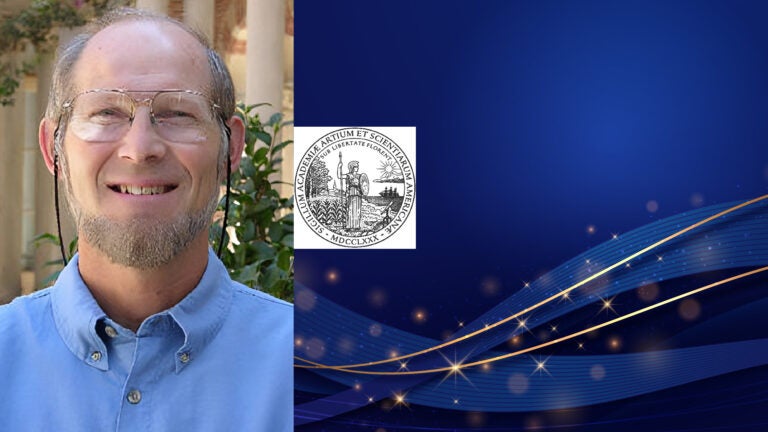
Philosopher ranked with Benjamin Franklin, Ralph Waldo Emerson and other historic luminaries
James Van Cleve, professor of philosophy at the USC Dornsife College of Letters, Arts and Sciences, has been elected to the American Academy of Arts and Sciences.
The academy, founded in 1780, serves as a research center convening leaders from across disciplines, professions and perspectives to address significant challenges and recognizes and celebrates the excellence of its diverse members.
Van Cleve is the 28th faculty member at USC Dornsife to be elected to the prestigious academy, which this year also adds author Zadie Smith, conductor Gustavo Dudamel, entertainment industry notables Shonda Rhimes, Michelle Yeoh and Lin-Manuel Miranda. These names add to a long list of historically significant luminaries.
“It’s an honor to be in the illustrious company of the likes of Ben Franklin, Ralph Waldo Emerson and Lin-Manuel Miranda, even if as a much lesser light,” says Van Cleve.
Joining USC Dornsife as a visiting professor more than 20 years ago, Van Cleve was named to the full-time faculty in 2005. He studies current problems in metaphysics and the philosophy of perception as well as early modern philosophers.
He says he was an undergraduate when his interest in philosophy arose.
“I was drawn in large part by the methods of the discipline — the careful defining of one’s terms, articulating all the premises needed in an argument, respecting the evidence and following it where it leads, and so on — habits all too often missing these days or even spurned,” he says. “But the content of philosophy was also a draw, and its questions have been a source of fascination for me for decades. Is changing the past logically possible? What gives thoughts their reference to things? Does morality depend on theology?”
His scholarship has produced more than 100 publications, among them the notable book Problems from Kant (Oxford University Press, 1999). This work delves into the 18th-century German philosopher Immanuel Kant’s renowned opus, Critique of Pure Reason, offering an in-depth examination of its central themes. His follow-up tome, Problems from Reid (Oxford University Press, 2015), takes a similar approach to the works of Scottish philosopher Thomas Reid, a contemporary of Kant’s.
More recently, Van Cleve has focused on another Scottish philosopher, David Hume, while teaching undergraduate courses on “Philosophical Foundations of Modern Western Culture,” “Time and Time Travel,” “History of Modern Philosophy” and “Metaphysics.” His graduate seminars explore the philosophy of A.N. Prior, the philosophy of perception, probability and epistemology, and mereology (the study of parts and the wholes they compose) among other subjects.
In addition to his academic pursuits, Van Cleve has generously shared his expertise by delivering more than 120 invited lectures at esteemed institutions throughout the world.
His honors include a Woodrow Wilson Dissertation Fellowship, a Brown University Wriston Fellowship, a Fulbright Award to Lecture in India, an American Council of Learned Societies Fellowship, a National Endowment for the Humanities Fellowship and a National Humanities Center Fellowship.